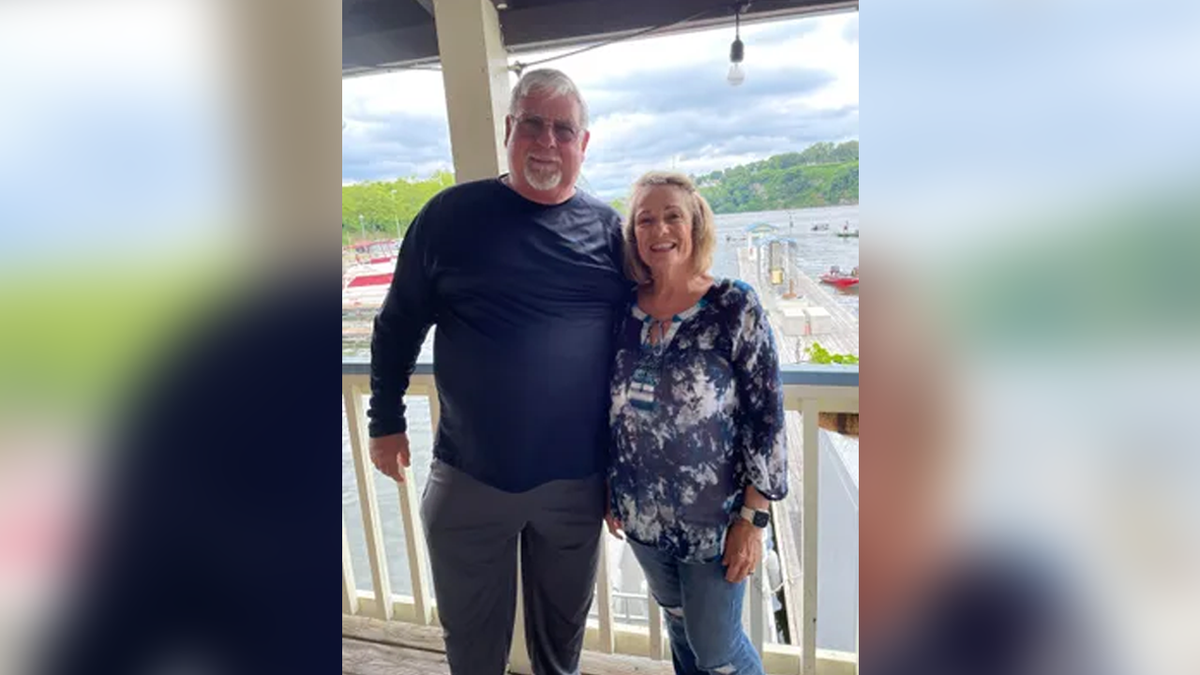Florida surgeon accused of fatally removing a man’s liver instead of spleen has had his medical license suspended, a haunting reminder of the fragility of trust placed in medical professionals.
In an alarming emergency order from the Florida Department of Health, Dr. Thomas Shaknovsky allegedly committed a tragic blunder, removing 70-year-old Bill Bryan’s liver rather than his spleen—a grievous medical error classifying him as an “immediate, serious danger” to public safety.
Details from the order reveal Shaknovsky’s attempts to conceal this critical mistake, engaging in fabricating medical documentation and lying about the events leading up to and during the surgery. Such actions only amplify the distress felt by the family and the community at large.
During the surgery at Ascension Sacred Heart Emerald Coast Hospital in Miramar Beach, which occurred on August 21, Bill Bryan tragically lost his life. He had traveled to Destin with his wife Beverly for some time away when his health declined, leading to an ill-fated emergency room visit.
On August 18, Bryan experienced discomfort in his abdomen. Following his examination, he was informed he had an enlarged spleen. Shaknovsky claimed immediate surgery was necessary. Despite their concerns, Bryan and Beverly, with ties to healthcare professionals in Alabama, were pressured by Shaknovsky, who asserted that their only path forward was to operate without delay.
Beverly recalled their distressing experience; “We called Bill’s doctor back home, and he assured us that he could arrange for care in Alabama.” However, Shaknovsky countered with urgency, insisting to her that Bill faced the risk of severe hemorrhaging if moved.
After three days of negotiation, Bryan acquiesced to the surgery, notwithstanding apprehensions voiced by staff members, who questioned Shaknovsky’s qualifications for the complex procedure. This reveals an unsettling undermining of patient autonomy, as those charged with Bill’s care advanced towards a decision steeped in uncertainty.
The aftermath painted a grim picture. Following the removal of what Shaknovsky misidentified as a spleen, Bryan endured catastrophic blood loss, leading him to cardiac arrest. Observers claim Shaknovsky’s actions indicated a dangerous level of recklessness; he operated without visibility, neglecting to employ clamps or cauterizers even as his patient suffered.

Post-operation, Shaknovsky erroneously declared the removed organ a spleen, despite the inherent differences in size, color, and position of the liver. This further underscores a tragic lapse in judgment. Staff members reportedly recoiled in disbelief, left overwhelmed by the sheer absurdity of the situation when faced with the recognizable organ.
In a disconcerting twist, Shaknovsky maintained that Bryan succumbed to a “ruptured splenic artery aneurysm,” attempting to mislead his colleagues into supporting his claims, despite their knowledge to the contrary. He directed that the organ be labeled an “spleen” for pathology, despite the dissonance between his instructions and reality.
Even amidst the chaos that defined the surgical experience, Shaknovsky displayed an unwillingness to confront his mistake, opting instead to draft fabricated operative reports that detailed nonexistent procedures. His history reveals a troubling pattern: a previous incident where he mistakenly removed part of a pancreas instead of an adrenal gland, leaving that patient with long-lasting harm.
With multiple egregious errors, the order conveys a profound concern for patient safety—signifying that Shaknovsky’s persistent reckless behavior threatens public well-being. The implications of this case trigger much contemplation within the medical and local communities, highlighting the weight of one man’s choices.

Grieving and seeking accountability, Beverly Bryan has pursued both civil and criminal consequences for her husband’s tragic death. Represented by Zarzaur Law, a firm dedicated to seeking justice, her story echoes the anger and heartbreak of many who question the integrity of their healthcare system. Ascension Sacred Heart Emerald Coast, with its history of care since 2003, has stated they are conducting a thorough investigation—one that bears significant implications not just for the families affected but for the entire community.
Medical cases like these not only inflict lasting emotional scars on the victims’ families but also challenge the foundation of trust that many have in the medical profession. Reflection upon these events compels a broader examination of how accountability intersects with the life-saving services that healthcare professionals provide.
